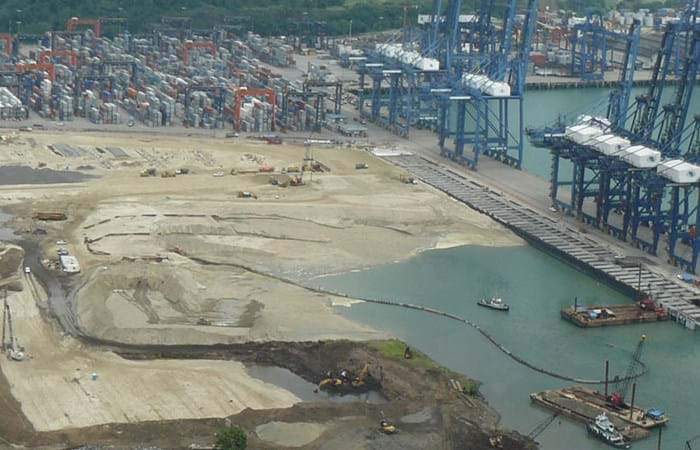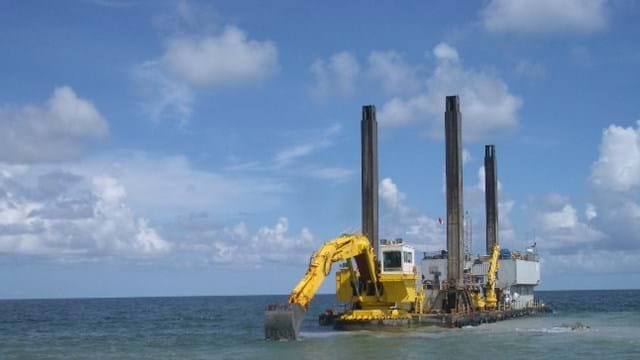The plans to expand the Panama Canal represent one of the most important infrastructure improvements of the 21<sup>st</sup> century. Since its opening in 1913 the Canal has provided the shortest and most economically viable shipping route from Pacific to Atlantic seaports. With the ever-increasing size of modern-day vessels, it was inevitable that the Canal would need to be widened and deepened. The expansion of the Canal has made the extension of the Port of Balboa at the mouth of the canal on the Pacific Ocean a necessity. The Phase 4 projects included Marine Works and Civil Works to improve two existing berths and to build a completely new berth capable of handling not only Post Panamax but also Super Post Panamax ships.
In 2007 a contract for the improvement behind berths 16 and 17 at the container port of Balboa was awarded to Boskalis by Panama Ports Company SA, a member of the Hutchison Port Holding Group of Hong Kong, to be completed in a 15 month timeframe. Soon after, other contracts to build a completely new berth followed. The contract required dredging, reclamation and improvement of water and land areas. At Berth 18, in addition, drilling and blasting rock was necessary.

